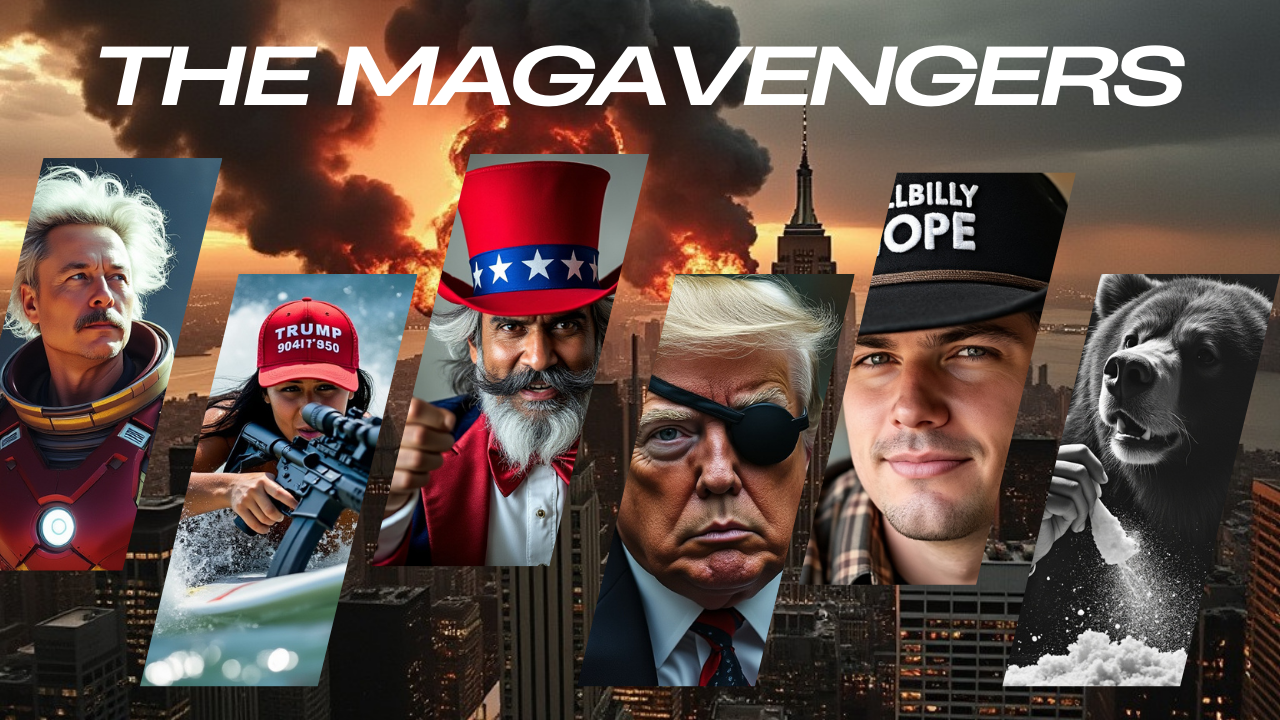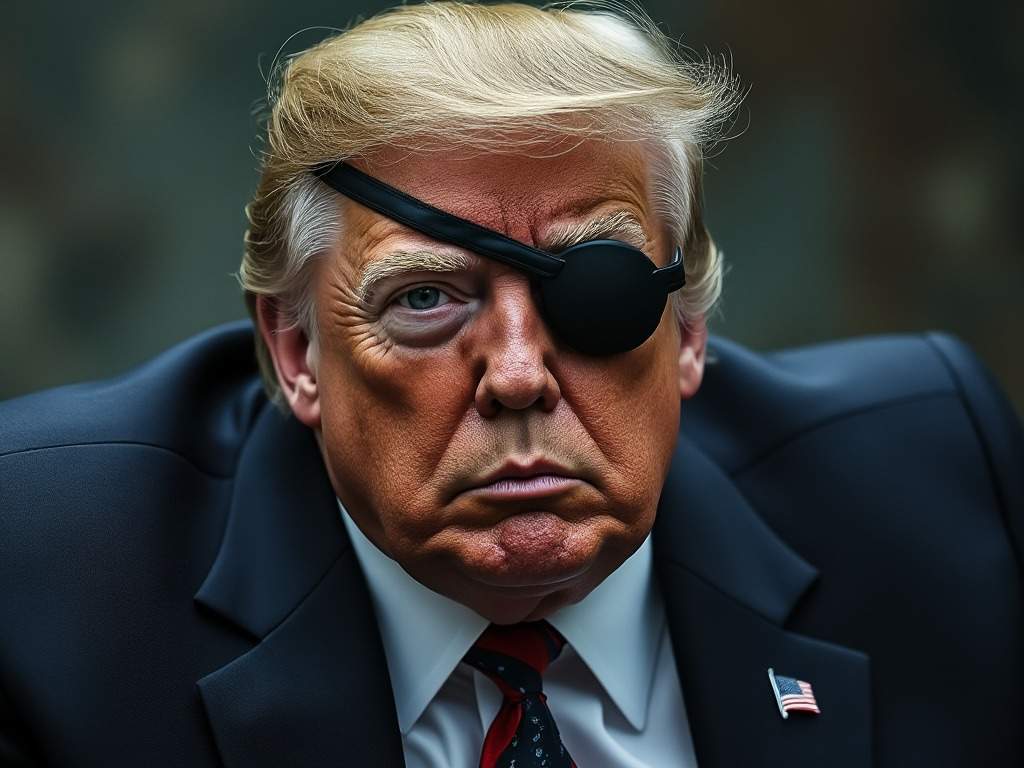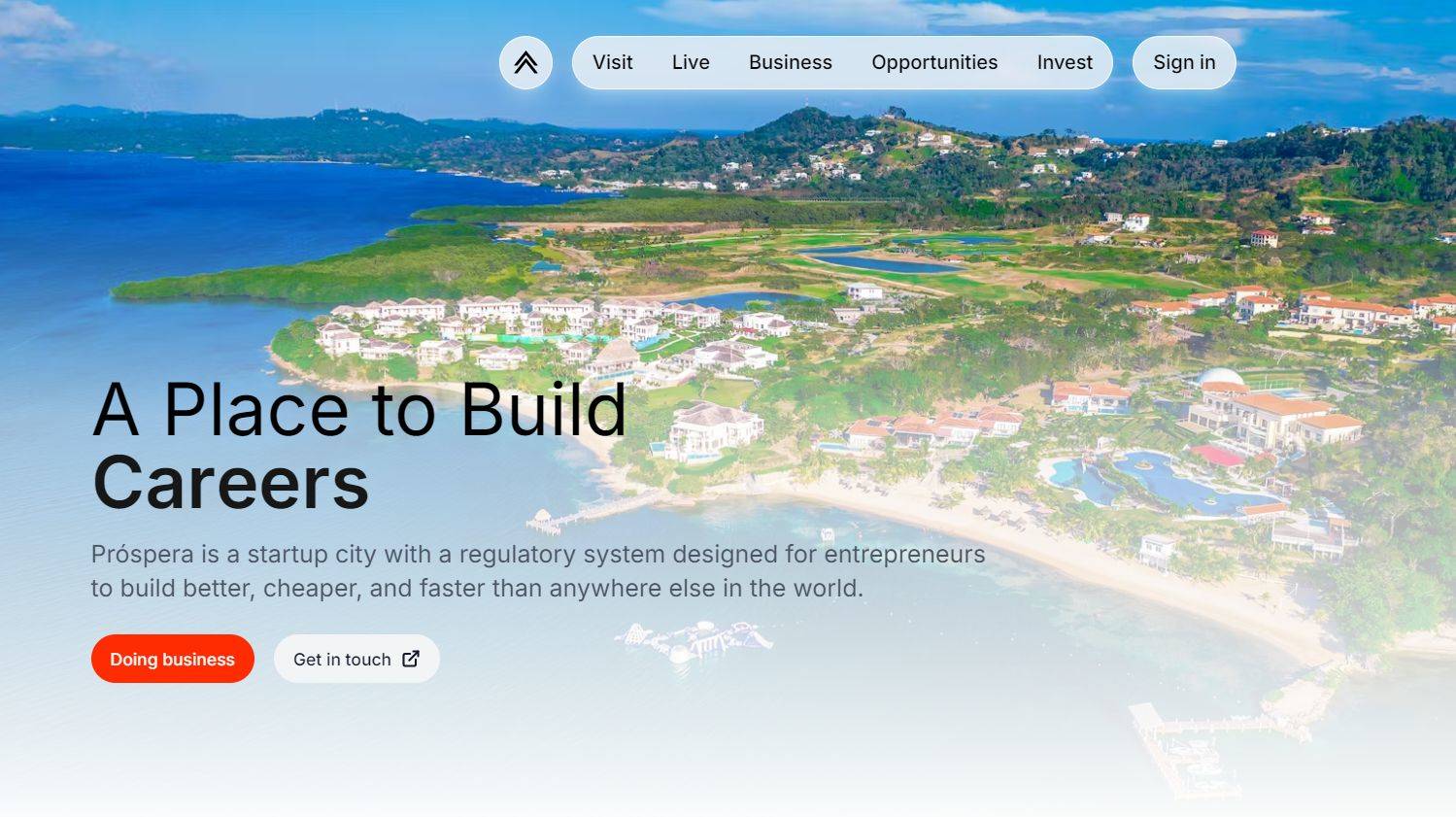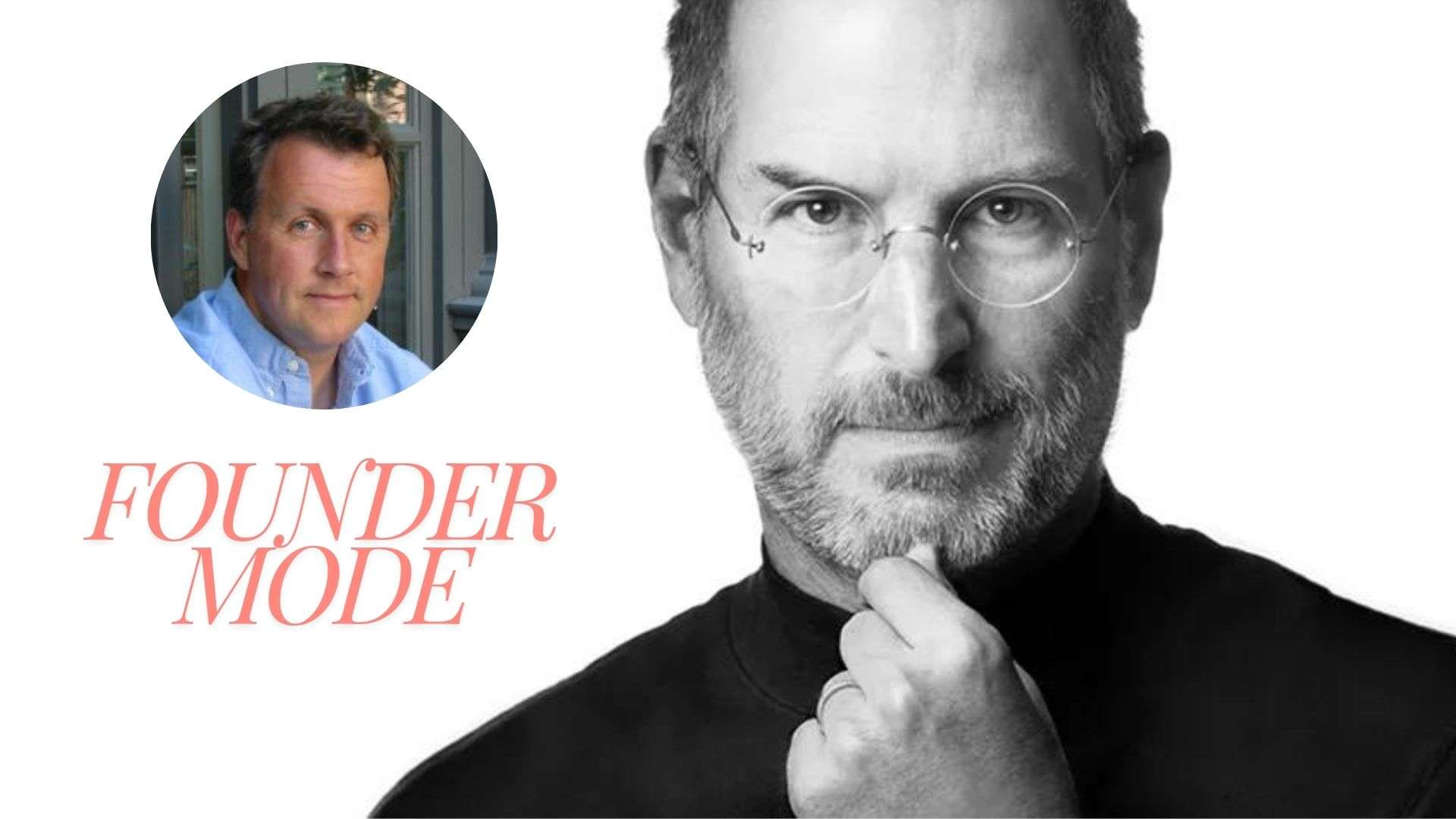
Hello, and welcome to the 8th edition of The Weekly Vine.
We apologise if you felt you had nothing to quip about last week, but a family emergency forced yours truly to go back home and take care of one’s mother — which prompted an old Munna Bhai-style lament from her: “Why couldn’t you become a doctor?” As I’ve pointed out for decades, the idea of becoming a doctor is preposterous. I can’t even draw a straight line with a ruler, let alone cut people open without a fast ticket to jail.
Even being a psychiatrist was out of the question, given my Bong propensity for existentialist angst which would have been passed on to the patients.
Childhood laments aside, this week we’ve got the MAGAvengers, the IC-814 outrage, Pakistan cricket’s woes, a start-up city that’s the Gurugram of Honduras, and the tech bros’ new favourite term: Founder Mode.
PS: Those who read Edition 7 of The Weekly Vine will remember my tangles with Uncle Sam, and I only wish I had read this article before: Five things to keep in mind before applying for a US visa.
The MAGAvengers

Much like Nick Fury in The Avengers, Donald Trump has assembled a team to avenge America from the dystopian hellhole of war-mongering, bad food, too many government departments, and gender-bending pride parades. Each of them represents a different Jungian archetype that appeals to the American psyche on a level that the mainstream media can’t quite comprehend — or at least fails to elucidate to its audience.
The roster includes: an articulate Indian-origin immigrant who is every Tiger Mum’s Tyler Durden, a former Democrat who loves surfing and ending presidential campaigns, a Kennedy who sold cocaine and dumped a dead bear in Central Park, a billionaire who wants to colonise Mars and loves memes, and finally, a hillbilly-turned-tech bro who is the most millennial VP candidate ever. They might not be the 1927 Yankees, but in their own Jungian archetype way, they are all American heroes who appeal to different demographics. Meet the MAGAvengers, the team Trump has assembled to “save” America from wokeness.
The Weekly Vine Quip: Intermittent fasting enthusiast Winston Churchill always said a benevolent dictatorship was preferable to a democracy. Looking at the state of the American presidential elections, it makes one wonder if the walrus-shaped racist was right about this? Probably not.
Propaganda
IC 814 on Netflix has become the latest OTT series to be deemed propaganda, with even famous food bloggers complaining about the film giving a clean chit to Pakistan’s ISI.
In recent years, propaganda has become a fancy term used by film critics — who would do well to tell us whether to watch a movie or not instead of bragging about random art films they have seen — to describe any film that does not match their political biases.
The term has been bandied about with wanton abandon for almost every film, from The Kashmir Files to Jawan. The fact of the matter is that almost every movie is propaganda, whether for Marx, Mammon, or other deities.

Even Top Gun was propaganda to get more kids to become pilots in the US Navy. Take Rang De Basanti, one of the finest films made in the noughties, with a stellar star cast, the last great Rahman music album, and a political message that’s subversive or revolutionary depending on your worldview.
If you take a step back and do a Derrida on the film, you will realise that it’s the ultimate anarcho-communist fantasy that ends with the assassination of a democratically-elected leader, and it’s only because it’s wrapped in the fig leaf of patriotism that we don’t feel angry at the insidious plot. Simply put, one man’s propaganda film is another man’s affirming life truth.
The Weekly Vine Quip: To quote Oscar Wilde: “Works of art are incapable of being moral or immoral. They are either good or bad. It’s only brutes and the illiterate, who are incalculably stupid, who judge the morality of art.” The same goes for people calling movies “propaganda”.
Pak Cricket Woes
For Indian fans of a certain vintage, facing Pakistan was the stuff of nightmares, with the likes of Wasim Akram and Waqar Younis torturing batsmen with their unplayable deliveries. It’s not a trauma that’s easily explained to those who have only seen the sublime fast bowling of Jasprit Bumrah — how we craved our neighbour’s ability to produce fast bowler after fast bowler while we only churned out medium pacers whose bowling speed was slower than Anil Kumble’s.

These days, Pakistan cricket is just a source of entertainment — a never-ending slapstick comedy routine only enlivened by the quality of cricket commentary from the country. The most memorable was YouTuber and cricket expert Wasay Habib’s consternation at the blasphemy of comparing Babar Azam to Sachin Tendulkar, who broke down and asked his fellow panellists if they had ever watched Tendulkar bat, saying: “Sachin Tendulkar ka khelte huey dekhe hain. Khuda kaa khauf karein (Have you ever seen Sachin Tendulkar bat? Fear God before blaspheming).”
The most recent upset for Pakistani cricket came at the hands of Bangladesh — a country also facing political turmoil and one of the few willing to tour Pakistan — after a 0-2 reversal in the two-match Test series. And the loss came after Bangladesh were 26/6 but were upstaged by a remarkable innings from Litton Das.
It would appear that a cocktail of political turmoil, using terror as a bargaining chip in foreign policy, economic inactivity, and religious radicalisation isn’t conducive to a healthy sporting culture, except for freaks of nature like Arshad Nadeem.
The Weekly Vine Quip: Much like Pakistan as a nation, Pakistan cricket seems to have met the same fate since its intrepid Army took over its training.
The Start-Up City

Imagine a city with minimal government intervention, run by startups, and designed to attract foreign investments with a business-friendly legal environment. Welcome to Próspera, the Gurugram of Honduras — a living embodiment of late-stage capitalism.
Founded in 2017, Próspera operates under a distinctive legal framework that grants it significant autonomy from the Honduran government — essentially a form of legalised bribery to ensure they are left alone. Businesses in Próspera have the flexibility to choose regulatory frameworks from 36 different countries or even create their own — a dream come true for American capitalists who wish to replicate fire-trap working conditions found in China. The city has attracted investments from prominent Silicon Valley figures like Peter Thiel, Sam Altman, and Marc Andreessen, who see it as a testing ground for new models of governance and economic development.
Unsurprisingly, the city has sparked controversy, with critics describing it as a form of neocolonialism or corporate monarchy, where foreign investors and corporations exploit local land and labour under the guise of economic progress. Many have raised objections, arguing that this model bypasses the traditional checks and balances of a democratic system, effectively eliminating the need for lobbyists and middlemen.
The Weekly Vine Quip: It’s human nature to be suspicious of anything we can’t quite comprehend.
Founder Mode

The words of the prophets aren’t just written on subway walls but are also found in the utterances of tech bros who have a new favourite term: Founder Mode. To be fair, I’ve been in Founder Mode since I was a little boy in boarding school. I would wait the entire year for the annual Founder’s Day when, for once — instead of the swill masquerading as sustenance that was neither fit for man nor beast — we would be served gustatory delights that would gladden our hearts and tastebuds. Turns out that’s not the Founder Mode the tech bros were speaking about.
Instead, Founder Mode is a term popularised by Airbnb co-founder Brian Chesky and Y Combinator co-founder Paul Graham.
Based on Chesky’s own example, and the way Steve Jobs ran Apple, Founder Mode refers to being hands-on in every single detail, as opposed to a manager who would delegate tasks to others like a professionally-hired CEO. The received wisdom was that a parent (the founder) would care more for the baby in the crib than a nanny (hired hand). Other examples of people who operate in Founder Mode are Jensen Huang of Nvidia, Elon Musk in Tesla, X, Starlink, and meme-making, Mark Zuckerberg of Meta, and Sam Altman of OpenAI. At first glance, Founder Mode does seem to make more sense than any tricks taught in business school, but then again, even Steve Jobs needed a manager like Tim Cook to make Apple what it is. The same goes for CEOs like Sundar Pichai or Satya Nadella, who might not be founders but play crucial roles in the mega-companies they run.
The Weekly Vine Quip: Founder Mode does sound a lot like autocratic micro-management, but no one ever accused Big Tech of being a democracy.
Disclaimer
Views expressed above are the author’s own.
END OF ARTICLE
